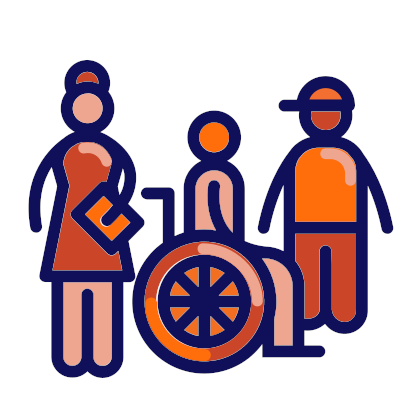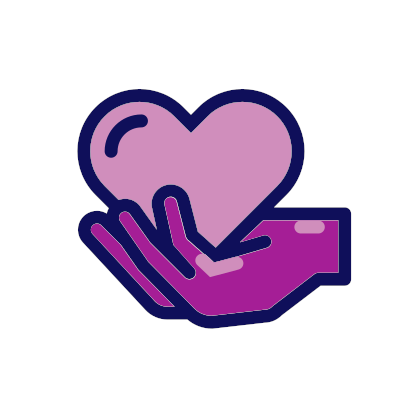Addressing controversial issues

However, being able to discuss sensitive and controversial issues in a respectful way is a vital skill in a democratic culture.
Schools must be places where students feel safe to engage in debates with people who have different opinions. Through the careful management of discussions on controversial issues, schools can promote freedom of expression, as well as inclusion, tolerance, and human rights and prevent, or counter, the use of hate speech by students.
To achieve this, a school action plan on managing controversial issues – which provides staff training – should be adopted as a priority.
Facts & Figures
71% of teachers and school leaders surveyed agreed that it is very important that all students in their school express their views openly, even when their views might be controversial.[1]
In response to the question, ‘How valuable is the study of the Holocaust for primary children?’ 88% of teachers viewed Holocaust teaching to be either ‘worthwhile’ or ‘very valuable’ to the primary pupil, although only 48% had actually taught it.[2]
What are controversial issues?
Controversial issues are issues which arouse strong feelings and divide communities.
Issues like these can arise anywhere at any time. They vary from the local to the global – from minarets to climate change. They also vary from place to place, e.g., gay marriage is relatively uncontentious in some countries, but highly controversial in others. Some are long-standing controversies, e.g., the ‘Troubles’ in Northern Ireland, the Israel-Palestine conflict and the ‘Kurdish issue’ in Turkey; while others are more recent, e.g., refugees, violent extremism and transgender issues.
What all these issues have in common is that they are complex, not easily settled by appeal to evidence alone and highly emotive – so much so that people often have difficulty discussing them rationally.
Why is it important to address controversial issues at school?
While it might be tempting for schools to try to shy away from issues like these, this is neither beneficial nor practical.
Discussing controversial issues helps students with different backgrounds and lifestyles to learn to live and work together peacefully and respectfully. It encourages them to listen to each other and talk through their differences sensitively. It also challenges them to think critically about their own beliefs and values and gives them confidence and skills to express these publicly.
Talking through difficult issues together develops a number of important democratic competences, e.g., openness to other cultures and beliefs, analytical and critical thinking skills, flexibility and adaptability, and tolerance of ambiguity - all of which lie at the heart of the Council of Europe Reference Framework of Competences for Democratic Culture.
Handled well, it breaks down barriers and helps to defuse social tension between opposing groups, both in school and the wider community.
Exploring controversial issues has educational as well as personal and social benefits. Issues like these help to define some of the major social, political, economic and moral fault-lines in contemporary life and underpin academic learning in many school subjects.
The strongest argument for addressing controversial issues explicitly, however, is that, in practice, they simply cannot be avoided. If teachers do not raise these issues, their students will.
Through training in the teaching of controversial issues, I have found the courage to discuss openly with my students issues I thought I would never be able to do, e.g., about sexual abuse and the porn industry.” Teacher, Iceland
What are the challenges?
The biggest challenge is creating a school ethos in which students genuinely feel they can speak openly about their concerns without fear of vilification or ridicule.
Creating such an ethos requires a whole-school approach. It includes among other things:
- teachers having the confidence and skills to handle discussion of difficult issues in the classroom, e.g., knowing how to deal with their own prejudices and biases, protect vulnerable individuals and marginalised groups, present issues even-handedly, cope with a lack of expert knowledge, and handle spontaneous or unexpected questions and remarks constructively;
- school leaders encouraging their staff to take on issues which are controversial and maintaining a consistency of approach across the school, e.g., by providing leadership, professional development, opportunities for team teaching, guidance and support, and risk management;
- parents and local communities feeling assured that the school is on their side, e.g., being confident the school will not misrepresent or try to undermine their views or culture.
How can schools get active?
A good way for schools to begin is by:
- identifying where controversial issues already feature in the school curriculum and discussing how these are currently handled, e.g., evolution, climate change or animal testing in Science;
- considering new opportunities for introducing controversial issues into other school subjects and how they might be incorporated into teaching, e.g., the use and abuse of social statistics in Maths;
- developing ground rules for classroom discussion which guarantee everyone a voice to express their opinion and encourage respect for whoever wishes to speak;
- creating a small support group to help teachers develop techniques for managing discussion of difficult issues, e.g., how to ‘de-personalise’ an issue by using a story or historical parallel, or helping students to consider alternative perspectives by putting them in other people’s shoes;
- liaising with students and parents to ensure specific issues are handled fairly and with appropriate methods;
- introducing more opportunities for discussion in school life and decision-making generally, e.g., in parents’ meetings, staff meetings and pupil parliaments.
[1] ‘Free to speak, Safe to learn – Democratic schools for all’ Survey, First Trends, 2018
[2] Cowan & Maitles, ‘Feature or Footnote? Teachers’ attitudes towards the teaching of the Holocaust in primary schools in Scotland’.
 Resources on Addressing Controversial Issues
Resources on Addressing Controversial Issues
Multimedia
- Crossroads of European Histories - Multiple Outlooks on Five Key Moments in the History of Europe (CD + Book) (2009)
- Education for Democracy and Human Rights in 10 Steps (2017)
- How can schools support students to be active citizens?
- Living in harmony together: the role of schools? (2014)
- Re-Thinking Education Policy For The 21st Century (2014) (Jón Torfi Jónasson)
- Shared histories for a Europe without dividing lines (2014)
- Through the Wild Web Woods – An online Internet safety game for children - Teachers guide (2013)
- What is the Charter on citizenship and human rights education?
Official texts
- Comparative study on blocking, filtering and take-down of illegal internet content (2017)
- Education for change - Change for education
- Eradicating violence against children - Council of Europe actions (2008)
- ETINED - Volume 1: 7th Session of the Prague Forum (2016)
- Freedom(s) - Learning activities for secondary schools on the case law of the European Court of Human Rights (2015)
- Global Education Guidelines. A Handbook for Educators to Understand and implement Global Education (2012)
- Guidelines for educators on combating intolerance and discrimination against Muslims – Addressing Islamophobia through Education (2011)
- Human Rights and Democracy Start with Us - Charter for All: Brochure for children, Guide for educators and a Poster (2014)
- Report of the Intergovernmental Policy Forum: The right of learners to quality and equity in education – the role of language and intercultural skills (2010)
- The Lisbon Recognition Convention at 15: making faire recognition a reality (Council of Europe higher education series No. 19) (2014)
- Thematic factsheets highlighting the European Court of Human Rights relevant case-law on issues relating to media freedom
- What is the Charter on citizenship and human rights education?
Policy documents
- Addressing violence in schools (2016)
- Bullying: Perspectives, Practices and Insights (2017)
- Comparative study on blocking, filtering and take-down of illegal internet content (2017)
- Compasito - manual on human rights education for children (2000)
- Compass - manual for human rights education with young people online resource (2002)
- Competences for democratic culture - Living together as equals in culturally diverse democratic societies (2016) A conceptual model of competences
- Curriculum Development and Review for Democratic Citizenship and Human Rights Education (2015)
- Developing attitudes to recognition: substantial differences in an age of globalisation (Council of Europe higher education series No. 13) (2010)
- Digital citizenship education - Volume 1: Overview and new perspective. Supporting children and young people to participate safely, effectively, critically and responsibly in a world filled with social media and digital technologies. (2017)
- Digital Citizenship Education (DCE) - 10 Domains leaflet
- Education for change - Change for education
- Education for Democracy and Human Rights in 10 Steps (2017)
- Education for democratic citizenship: policies and regulatory frameworks (2003)
- Equal opportunities for all children: Non-discrimination of lesbian, gay, bisexual, transgender and intersex (LGBTI) children and young people (2016)
- Eradicating violence against children - Council of Europe actions (2008)
- ETINED - Volume 1: 7th Session of the Prague Forum (2016)
- ETINED - Volume 2: Ethical principles (2016)
- ETINED - Volume 4: Codes of conduct for teachers in Europe: A background study (2017)
- ETINED - Volume 5: South-East European Project on Policies for Academic Integrity (2018)
- Freedom(s) - Learning activities for secondary schools on the case law of the European Court of Human Rights (2015)
- From linguistic diversity to Plurilingual education: Guide for the development of language education policies in Europe (2007)
- Gender Matters. A manual on addressing gender-based violence affecting young people 2007 (reprint 2013)
- Global Education Guidelines. A Handbook for Educators to Understand and implement Global Education (2012)
- Guide for the development and implementation of curricula for Plurilingual and intercultural education (2016)
- Guidelines for educators on combating intolerance and discrimination against Muslims – Addressing Islamophobia through Education (2011)
- Higher Education and Democratic Culture: Citizenship, Human Rights and Civic Responsibility (Council of Europe higher education series No. 8) (2008)
- History education in Europe. Ten years of co-operation between the Russian Federation and the Council of Europe (2006)
- Human Rights and Democracy in Action Pilot Projects Scheme (2013-2014)
- Intercultural dialogue on Campus (Council of Europe higher education series No. 11) (2009)
- Language support for adult refugees: a Council of Europe toolkit (2017)
- Learning to live together. Council of Europe report on the state of citizenship and human rights education in Europe (2017)
- Living with Controversy - Teaching Controversial Issues Through Education for Democratic Citizenship and Human Rights (EDC/HRE) (2016)
- Managing controversy (2017). A self-reflection tool for school leaders and senior managers
- Multicultural Societies, Pluricultural People and the Project of Intercultural Education (2009)
- Open minds, free minds - No easy prey for counterfeit medicines and similarly dangerous medicines - Psycho-pedagogical concept guide for teachers (2015)
- Plurilingual and intercultural competence (2009)
- Plurilingual and intercultural education as a project (2009)
- Plurilingual and intercultural education as a right (2009)
- Quality history education in the 21st century. Principles and guidelines (2018)
- Re-Thinking Education Policy For The 21st Century (2014) (Jón Torfi Jónasson)
- Reference Framework of Competences for Democratic Culture Volume 1: Context, concepts and model (2018)
- Reference Framework of Competences for Democratic Culture Volume 2: Descriptors (2018)
- Reference Framework of Competences for Democratic Culture Volume 3: Guidance for implementation (2018)
- Report of the Intergovernmental Policy Forum: The right of learners to quality and equity in education – the role of language and intercultural skills (2010)
- Speaking across borders: the role of higher education in furthering intercultural dialogue (Council of Europe higher education series No. 16) (2010)
- Specifying languages’ contribution to intercultural education. Lessons learned from the CEFR (2013)
- Strategic support for decision makers - Policy tool for education for democratic citizenship and human rights (2010)
- Students as suspects? - The challenges of counter-radicalisation policies in education in the Council of Europe member states (2018)
- The linguistic integration of adult migrants: from one country to another, from one language to another (2014)
- The Lisbon Recognition Convention at 15: making faire recognition a reality (Council of Europe higher education series No. 19) (2014)
- The public responsibility for higher education and research. (Council of Europe higher education series No. 2) (2005)
- The university as res publica - Higher education governance, student participation and the university as a site of citizenship (Council of Europe higher education series No. 1) (2004)
- Thematic factsheets highlighting the European Court of Human Rights relevant case-law on issues relating to media freedom
- Volume 3 - Ethical behaviour of all actors in education
- What is citizenship and human rights education? (2015) Leaflet
 Related schools projects
Related schools projects
Address: Gamle Riksveg 246, 3055 Krokstadelva
Country: Norway
Project: See and be seen
 Working language during the project:
Working language during the project:
- Norwegian
 Themes of the Council of Europe campaign “FREE to SPEAK, SAFE to LEARN - Democratic Schools for All” covered:
Themes of the Council of Europe campaign “FREE to SPEAK, SAFE to LEARN - Democratic Schools for All” covered:
- Making children’s and students’ voices heard
- Addressing controversial issues
- Preventing violence and bullying
- Tackling discrimination
- Improving well-being at school
 Competences from the Reference Framework of Competences for Democratic Culture (CDC) addressed and where / how they were integrated:
Competences from the Reference Framework of Competences for Democratic Culture (CDC) addressed and where / how they were integrated:
- Respect
- Responsibility
- Analytical and critical thinking skills
- Knowledge and critical understanding of language and communication
 Target group age range:
Target group age range:
- 11 - 15
 Level of education:
Level of education:
- Lower secondary education
Short description of the project:
Eknes lower secondary school has for a long time been working systematically to strengthen the focus on democratic awareness and prevent hate-speech bullying and social exclusion. In order to do this, Eknes has paid attention to enhancing the relations between the students. Our slogan is “See and be seen” (C&Z).
2014, the school participated in the project “Democratic preparedness against racism and antisemitism (Dembra)”. The aim of this programme is to strengthen efforts to promote critical thinking and participation, adjusted to each participating school’s previous experiences. As the programme says, the preventive work is all about relations between the adults and the pupils and how the school systematically focuses on creating a healthy school environment.
With this in mind, the school took part in the national programme “Kompetanse for mangfold (Competence for diversity)” with the focus on enhancing relations with minority students and on being aware of eventual prejudices. Like the Dembra- project, the aim is to enhance the relations between the students, and between students and teachers.
The school is also taking part in the programme “MOT (show courage)” which is a programme that educates students to become good role models for their fellow students. The principals of this programme are to be ahead of problems, to enhance the positive aspects in a person, to see the whole human being and assigning responsibility to students who can be good role models for fellow students. The students learn how to respect each other, how to include others and how to dare to be themselves.
Recently, the school participated in the education programme for learning democracy at Utøya (the island of the 22 of July- terrorism) by The European Wergeland Centre. The student council leader (10th grade) and two students from 9th grade represented the school. As part of the programme, the students learned activities they could take back to school and teach to the other students as well as the teachers to enhance democracy.
On the 24th and the 25th of October this year, the school celebrated United Nations. Our focus this year was on all of our programmes : how to strengthen students’ democratic thinking, values and skills to prevent hate speech, discrimination and exclusion. The celebrations brought the whole school together. We were blessed to be contacted by one of the mothers who lost her 14year old daughter in the terrorist attack at Utøya. Her speech for the students was a powerful reminder and message of why addressing hate crimes and teaching on controversial issues is so important.
After the powerful launch, the grades were mixed together and divided into six different groups. Each group had to visit six different stations where they took part in activities learned at Utøya (two stations) and activities learned from Dembra – (two stations), a dance station, and a station for making a news wall promoting democracy.
As a finale, the whole school joined for the school song (the Eknes song) and then the BlimE (come join us) dance. This dance is produced by the Norwegian Broadcasting Company and its goal is to promote friendship and caring for each other. This campaign is a well-known and popular initiative at all schools in Norway.
 Aims/objectives
Aims/objectives
Our aim is to enhance responsibility, tolerance and cooperation between students and between adults and students. Our focus is to see the whole human; both in a school matter, methodically and socially.
 Expected results/outcomes
Expected results/outcomes
expect students to take responsibility for themselves, for their fellow students and for the work environment. We expect students to recognise social exclusion and address it, including hate speech in the society. We expect tolerance and students that include each other.
 Changes
Changes
We will make some changes to where some of the activities took place. Some of the rooms that were used at the United Nation days were not equipped and big enough for the activities.
We will also substitute one of the activities with another one. We found that many of the students did not understand what their task was, and therefore it was hard for them to make a statement. They did not understand the meaning of the words of their task.
 Challenges you faced
Challenges you faced
How to get the whole student group to see why this is relevant and important, and how to get the students to see the relation between the different exercises.
 Time-frame of the project:
Time-frame of the project:
This is an ongoing project that is rooted in the school philosophy. We expect it to be integrated in the different courses.
 Council of Europe materials on citizenship and human rights education used while preparing or implementing your practice:
Council of Europe materials on citizenship and human rights education used while preparing or implementing your practice:
Bookmarks







